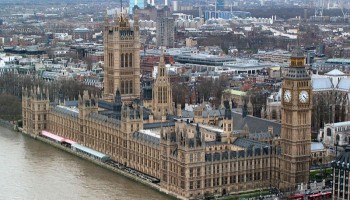Lib Dems Seek To Repeal Parts Of Digital Economy Act

The Lib Dems have pledged to repeal some of the more controversial parts of the Digital Economy Act
Fresh signs have emerged of the growing rift between the Conservative Party and the Liberal Democrats, after the latter formally pledged to repeal certain elements of the Digital Economy Act (DEA).
The DEA was hugely controversial when it became law back in April 2010, having being rushed through parliament in the dying days of the then-Labour government. Some of its measures, such as the three-strike system for illegal file-sharing, have sat uneasily with many industry watchers, politicians and even the United Nations.
Now the Lib Dems have voted on a policy to remove the controversial copyright enforcement and website-blocking measures sections in the Digital Economy Act. This happened when a technology policy paper was put forward to the Liberal Democrat Autumn Conference on Monday.
Two options
The paper, entitled “Preparing The Ground: Stimulating Growth In The Digital Economy,” had two elements concerning the DEA.
 Option A is the more far-reaching, as it seeks the repeal of sections 3-18 of the Digital Economy Act, which relate to copyright infringement. “Good legislation is built upon a robust evidential framework and a clear democratic mandate, neither of which were secured in this case,” said the paper. “The ultimate result has been a deeply flawed and unworkable Act which stands only as the main emblem of a misguided, outdated and negative approach.”
Option A is the more far-reaching, as it seeks the repeal of sections 3-18 of the Digital Economy Act, which relate to copyright infringement. “Good legislation is built upon a robust evidential framework and a clear democratic mandate, neither of which were secured in this case,” said the paper. “The ultimate result has been a deeply flawed and unworkable Act which stands only as the main emblem of a misguided, outdated and negative approach.”
Essentially, sections 3 to 18 cover the three-strike system for illegal downloaders that could result in repeat offenders being temporarily banned from the web. It covers the legal requirement for ISPs to block access to sites that contain copyright-infringing material. It also includes the monitoring of customer activities, as well as handing over contact details to right holders of those network connections that are being used for illegal file-sharing.
Option B, meanwhile, only recommends the repeal of sections 17 and 18 of the Act (i.e. blocking websites hosting illegal content). Option B also recommends that sections 9 to 16 “should not be commenced until the government can demonstrate that the measures would be necessary and effective, and assent had been given through a vote of both Houses”. These are sections that allow ISPs to suspend web access for illegal downloaders
In the end, Lib Dem party members chose the more far-reaching Option A.
Lacking Legitimacy
“This policy has some really exciting proposals, such as those on R&D, net neutrality and digital inclusion. IT is so important to Britain already – and it has the potential to drive a new, greener and more sustainable economy,” said Julian Huppert, the MP for Cambridge and chair of the IT policy working group.
“Tackling piracy is important, but it shouldn’t be seen as an end in itself,” Huppert in a statement. “It’s more important to create conditions that reward innovation and talent, and ensure that creators get the benefits of their work.”
“The Digital Economy Act fails to do that; worse, it sorely lacks a convincing evidence base and real democratic legitimacy,” he added. “I am delighted that Conference has passed this motion calling for the damaging parts of the Act to be repealed, and suggesting new ways for the digital economy to grow.”
Government Policy
It is unlikely the vote will result in a change in government policy on the DEA, but it does highlight the growing rift between the Lib Dems and Conservatives. The Conservatives essentially inherited the Digital Economy Act from Labour, but so far have only offered a six month review of current IP protection laws.
Indeed, in July, Communications Minister Ed Vaizey described the high court challenge to the DEA by BT and TalkTalk as “odd”.
That same month however, the UK’s equivalent of Silicon Valley called on the government to overhaul the UK’s outdated copyright laws. The call was made in an open letter to Prime Minister David Cameron, with British tech firms urging the government to implement the IP law reforms recommended in the report compiled by Professor Ian Hargreaves of Cardiff University, which was released in April this year.